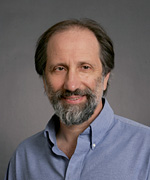Raphael Schiffmann, M.D., M.H.Sc.

Raphael Schiffmann, M.D. is an expert on neurometabolic diseases, focusing his research efforts on lysosomal storage disorders such as Gaucher disease. His primary research interests are: 1) studying the mechanisms by which the glucocerebrosidase enzyme deficiency causes neuronal damage in Gaucher patients, 2) evaluating enzyme replacement therapy and other novel therapeutic modalities in neuronopathic Gaucher disease, 3) continuing research on related lysosomal storage disorders such as Fabry disease, mucolipidosis, and leukodystrophies.
Dr. Schiffmann currently is the Director of the Institute of Metabolic Disease at the Baylor Research Institute, Dallas, Texas. Graduating cum laude from the University of Liège, Belgium, in 1980, Dr. Schiffmann went on to intern at the University Hospital in Liège through 1980, before completing his Pediatric Residency at Shaare Zedek Medical Center in Jerusalem in 1985. Internationally active, Dr. Schiffmann qualified for his VISA and moved to Boston, working in neurology and eventually as a Fellow at the Pediatric Neurology Division of New England Medical Center Hospital through 1988. From 1988 to 1991, he worked as a Pediatric Neurologist at Hadassah University Hospital in Jerusalem. In 1991, the NIH recruited Dr. Schiffmann for training in research of neurometabolic diseases. Between 1996 and 2007 Dr. Schiffmann was the Lead Investigator in the Developmental and Metabolic Neurology Branch at the National Institute of Neurological Disorders and Stroke (NINDS), a part of the National Institutes of Health (NIH). Dr. Schiffmann also has an advanced degree in clinical research from Duke University.
Dr. Schiffmann’s research with lysosomal storage disorders is invaluable to the fight against Gaucher disease. He performed extensive studies on the effectiveness of enzyme replacement therapy (ERT) in neuronopathic Gaucher disease (type 2 and 3 Gaucher). These studies gave Dr. Schiffmann the insight to determine that although ERT is very effective in reversing the systemic disease, it has no discernable effect on the neurologic manifestations of the disorder. He is currently testing other therapeutic approaches to neuronopathic Gaucher disease. His other area of concentration in Gaucher research has been the specific mechanisms that inflict neurological damage. In this research Dr. Schiffmann studies patients, patients’ cells in culture and other pathologic material. For example, he made significant insight in understanding the link between Gaucher disease and parkinsonism.
Dr. Schiffmann has established himself as an international authority in Gaucher disease research. He is an Active Member of the American Neurological Association, the International Child Neurology Association, the Child Neurology Society (USA), American Academy of Neurology, and the Israeli Child Neurology Society. He is a regular speaker at international meetings.
Dr. Schiffmann’s writings include 155 peer-reviewed publications in scholarly journals, and 19 book chapters and reviews. The corpus of his life’s work reflects a certain zeal for not only curing Gaucher disease, but also understanding the nature of related lysosomal storage disorders.
Dr. Schiffmann is the Chairman of the Scientific Advisory Board for the Children’s Gaucher Research Fund.






